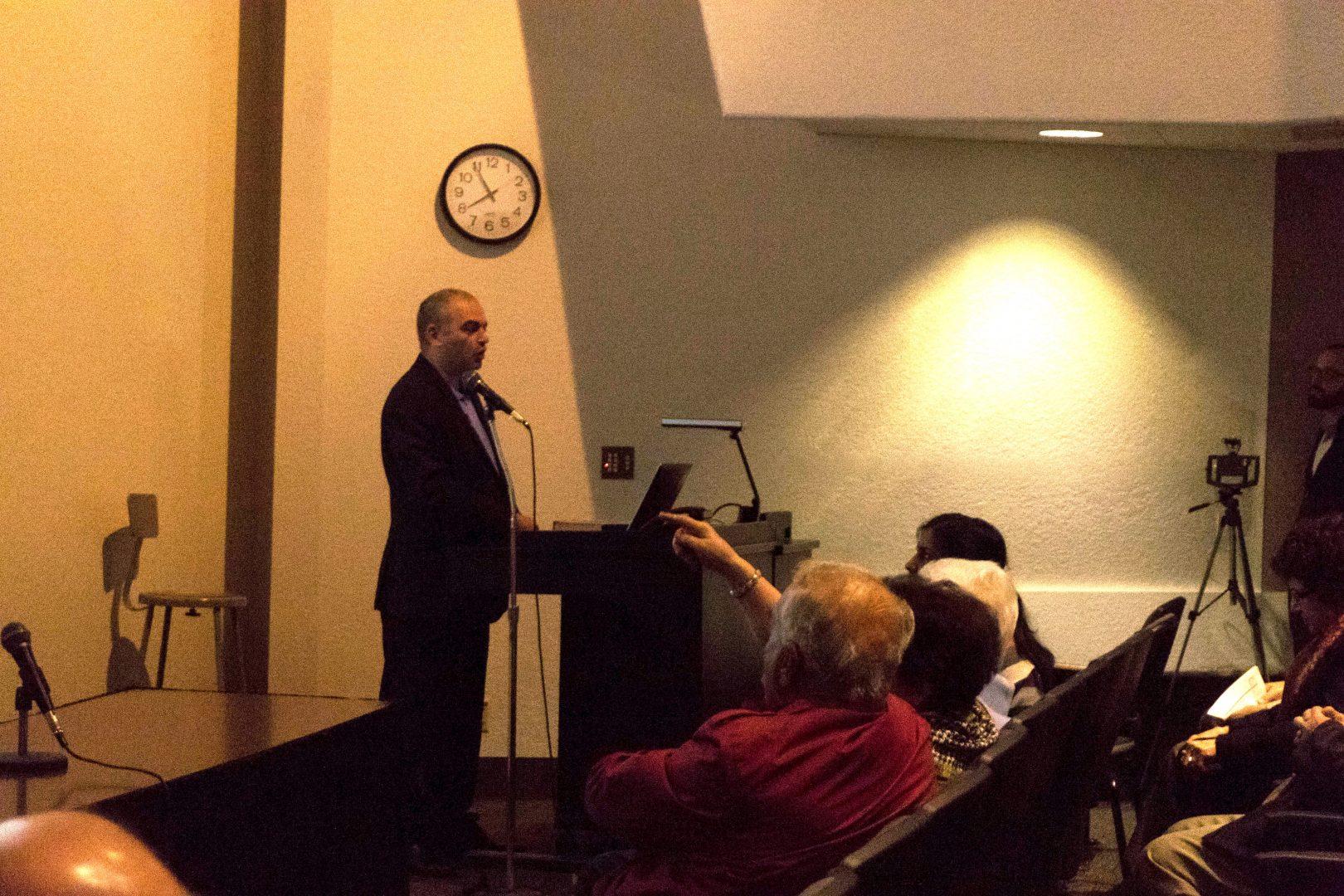The battle between history and the human mind was examined on Monday by Hayk Demoyan in his lecture, “Multiple Identities and Memories of the Armenian World.”
The lecture, which was a part of the Armenian studies program spring lecture series, showcased the research of Demoyan, who is a Fulbright U.S. scholar at Harvard University. Fulbright visiting scholars are from other nations and conduct research at universities in the U.S.
Demoyan is the director of the Armenian Genocide Museum Institute in Yerevan, Armenia and has written 12 books. He also served as the secretary of the state commission on coordination of the events dedicated to the commemoration of the 100th anniversary of the Armenian Genocide.
Demoyan’s lecture examined how physical symbols of Armenian history like monuments, statues and stamps vary throughout different countries. He explained that through the construction of these physical entities, some try to frame history the way they would like it to be framed. This can lead to differing narratives among people.
An overarching theme of the lecture was that there are disputes regarding whether certain historical figures or events should be perceived positively or negatively.
Barlow Der Mugrdechian, coordinator of the Armenian studies program at Fresno State, said that although history is factual, people’s personal opinions often interfere with how history is portrayed.
“There always are contesting versions of history. We always choose based on our own biases,” Der Mugrdechian said. “It should be done on a factual basis. It shouldn’t be done on the basis of trying to formulate the future.”
Those who attended the lecture said that the knowledge brought by Demoyan was something to look at as the Armenian culture evolves.
“Armenia is changing very rapidly — and it’s changing along with how Russia is changing,” said Armenian studies professor Sergio La Porta. “To get a more up-to-date view of how its own recent history is being reinterpreted today was particularly fascinating for me.”
La Porta said that, at times, certain representations of history can be offensive to others.
“Obviously, [it] would be uncomfortable to see that people who, for years, they considered as criminals now being restored with a nationalist interpretation,” he said.
Demoyan’s lecture also touched on the strain between Armenians living in Armenia and Armenians living outside of Armenia. La Porta said that divide can be diminished with events like these that get people from other environments to share their input.
“The only way that these tensions will be relieved is through continuous dialogue between the two communities,” La Porta said. “The more that we can encourage scholars who are Armenian to come here and Armenians from here to go there and talk to each other — I think having that conversation brings the two communities closer.”





